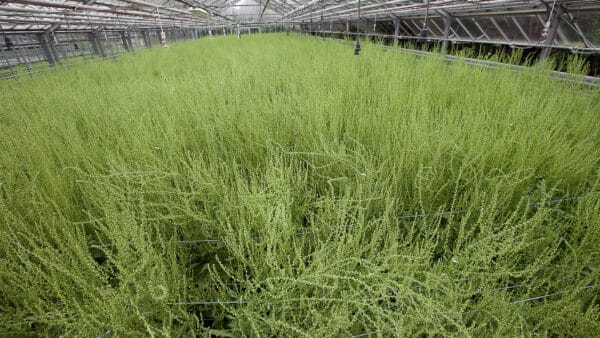We live in a digital age — almost everyone has an email, a social media account and a credit card. With any of those, you’re at risk for a cybersecurity attack.
As agriculture moves into a new, digital age filled with data, cloud-based services, and more, cybersecurity needs to be a bigger discussion. Unfortunately, the more the sector digitizes, the bigger a target you become for a cybercriminal attack.
“Why do you rob banks? That’s where the money is,” says Richard Harknett, professor of political science and director of the school of public and international affairs at the University of Cincinnati. “The primary motivation is that there is money to be made on the criminal side.”
While there’s differences between national cybersecurity, there are adversaries of the U.S. who recognize the important part agriculture — and thus, the seed industry — plays globally. By disrupting agriculture in one country, you can disrupt economic competitors. According to the Cybersecurity Guide, stopping one portion during harvest can reverberate throughout the entire industry, resulting in price spikes or shortages.
There are plenty of examples of food industry disruptions, including a ransomware attack that disrupted several of JFC International’s IT systems, which impacted its Europe group and even a ransomware attack on JBS, the world’s largest meat company, which crippled a large portion of the meat supply chain.
And, if you think it won’t happen to your business, you might be right — but awareness is the first step to halting cyber-attacks in their tracks.
“The bottom line is: do you have anything of value?” Harknett asks. “I would hope if you’re a successful business that you do, so one of the things you have to think about is what’s the value core? What’s your comparative advantage? That’s your crown jewel, and if it’s valuable to you, it’s valuable to some other nefarious actor.”
Knowing what’s most vulnerable in your company and how it can be exploited is the first step to understanding cybersecurity attacks, but the bigger of an online or digital presence you have, the more vulnerable you leave yourself.
“Agriculture needs to leverage this technology for greater productivity gains, but as you do that as a business, you also have to understand you’re taking on all the vulnerabilities that are built in this interconnected space,” he says.
Be intentional about your adoption of technology, but don’t rely on hope as your risk management plan and hope “It won’t happen to me!”
“I’m not a big fan of hope as a business plan,” Harknett says. “You need to start to understand where the vulnerabilities are and assume vulnerability.”
Ask questions like, “Am I buying more domestic tech?” and “What kind of contracts do I have if I’m using webservices for my data collection,” and then pry into your vendor’s background as well. Ask: “What backups do they have? Are they prone to disruption? Do they have any obligation to pay you back for that disruption?”
By understanding and asking questions about your vulnerabilities online, you’re one step closer to bettering your cybersecurity.
Want more tips on Cybersecurity? Watch our conversation with Richard:
Read More Giant Views:
Alice Ingabire Talks the Access to Seeds Index
Christian Wulff Talks New Opportunities with Haldrup
Ruth Mayes Walks Through the Ins and Outs of Machine Learning
Solynta and Incotec Announce Partnership to Optimize Performance of Hybrid True Potato Seeds











